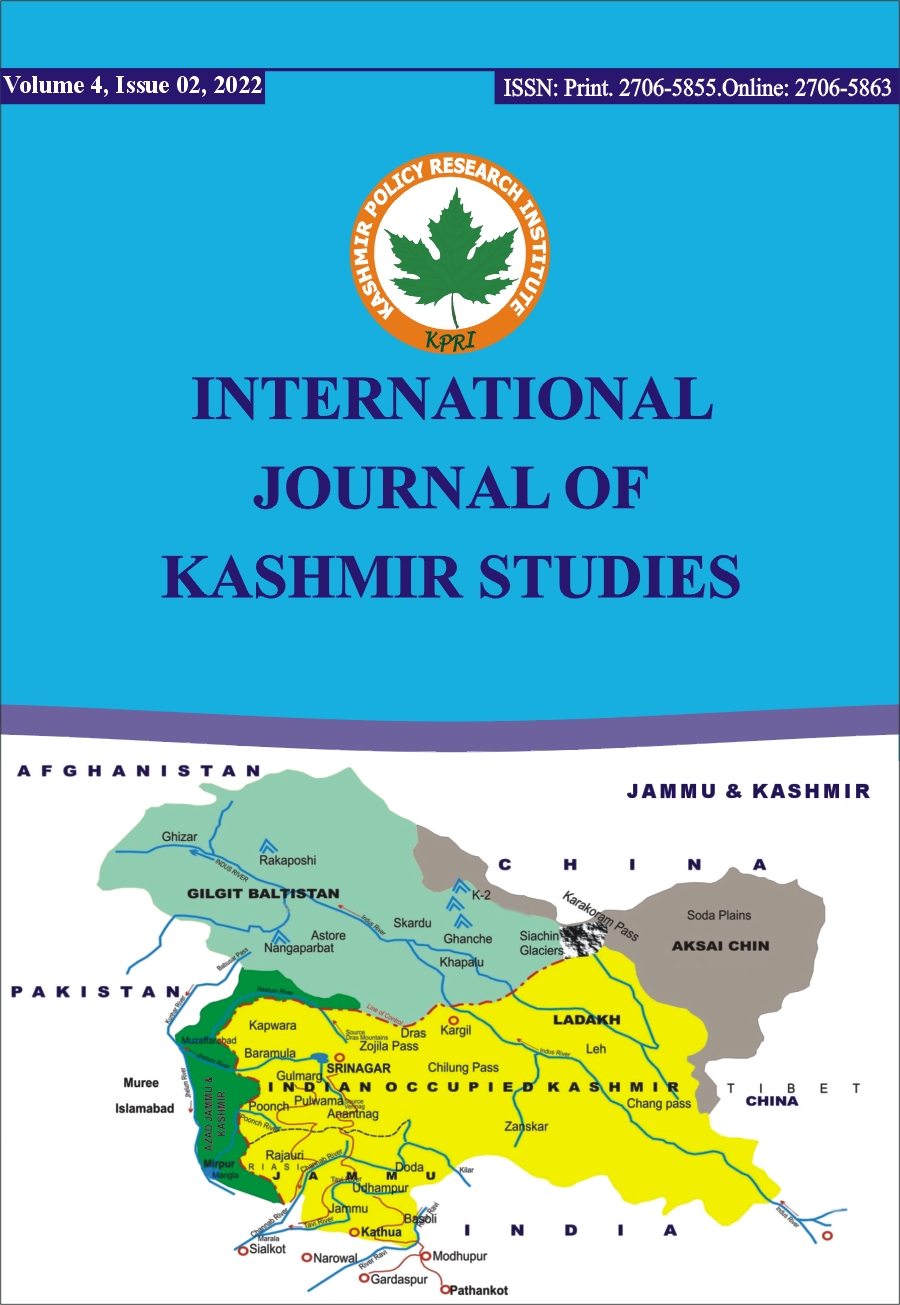Lawfare, its Prospects and Strategies for Pakistan: The Kashmir Case
Keywords:
Lawfare, Kashmir, Humanitarian Law, Human Rights.Abstract
The 74-year military occupation of Jammu and Kashmir is regarded as the longest in modern history, with approximately 700,000 armed forces deployed in UN-recognized Disputed Territory. Political and legal experts believe that the unilateral annexation of Indian-occupied Jammu and Kashmir (hence referred to as IOJK) on August 5, 2019 altered the region’s status from colonialism to settler colonialism. With at least forty (40) constitutional and administrative amendments influencing the demographic condition of IOJK, the Bharatiya Janata Party (BJP) government planned lawfare campaign in 2019 posed a severe threat to the civilian population. Surveillance, detentions, and fear politics—a three-pronged strangling paradigm shaped the security theology of the Indian state to dominate Kashmir. In the case of Kashmir, India has been consistently violating international law since the beginning of the conflict. From its illegal occupation to its refusal to implement UN Security Council decisions, India is consistently exhibiting a disregard for international law while imposing a repressive system filled with human rights violations and crimes against humanity. To counter a focused, detailed, and well-resourced lawfare campaign led by Pakistan and Kashmiris is essential to support our diplomatic efforts. The primary purpose of this paper is to analyze the reasons which make it necessary for Pakistan to emphasize on Lawfare regime.
Downloads


